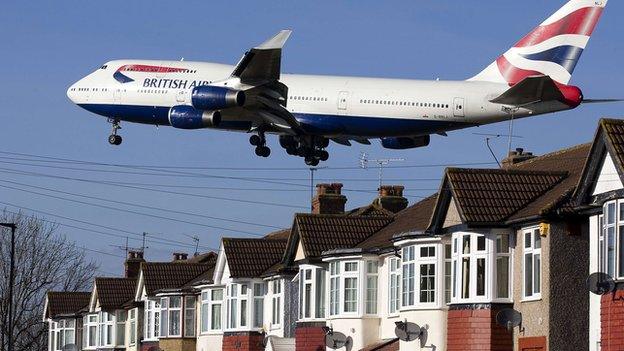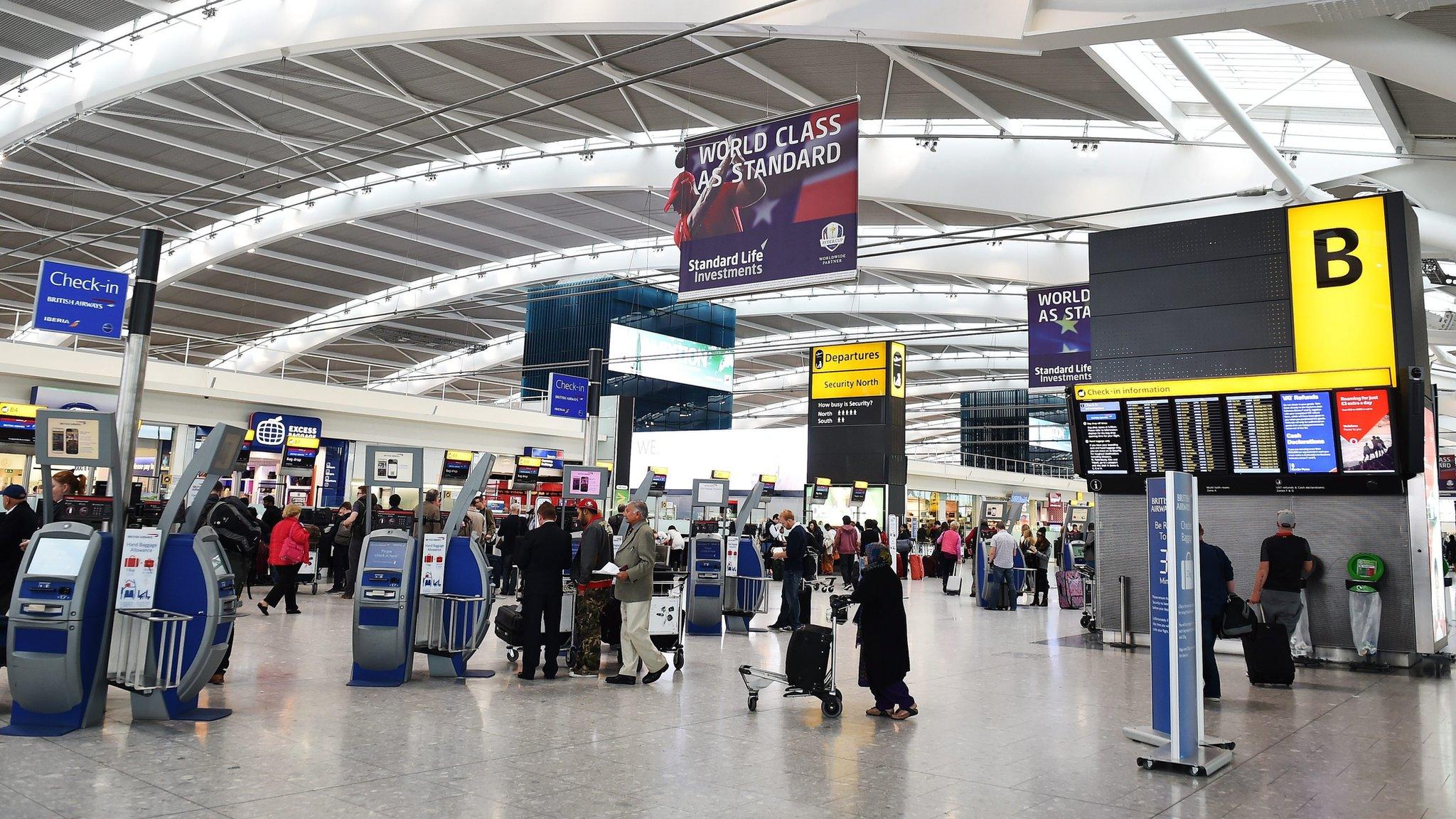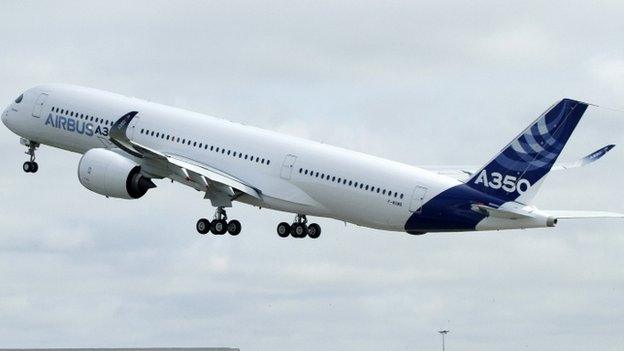Heathrow: Zac Goldsmith 'regrets' pledge to quit as MP
- Published

London mayoral candidate Zac Goldsmith has said he regrets promising to quit as an MP if David Cameron gives the go-ahead for a third runway at Heathrow.
The Richmond Park MP said he would stick to the pledge to trigger a by-election - but he would not quit as London mayor if elected in May.
He said it would be "an act of betrayal" for the prime minister to allow Heathrow to expand.
The PM is expected to soon announce a further delay to the Heathrow decision.
The BBC understands he will say a further study on the environmental impact is needed.
Mr Goldsmith said the case against Heathrow was clear but the Volkswagen car emissions scandal had "changed everything", meaning previous air quality calculations were invalid.
He said a delay would be "legitimate" to allow both Heathrow and Gatwick to make new submissions showing they can keep within legal air quality limits.
But if the government comes out in favour of a third runway at Heathrow - pending a six-month delay for further studies - that would look like " a bit of political game-playing".
In 2009, before he was elected prime minister, Mr Cameron pledged that there would be no third runway at Heathrow "no ifs, no buts".
Mr Goldsmith told a Westminster lunch for journalists he made his promise to quit, if elected as an MP, to support Mr Cameron but now regretted it.
Labour's candidate to be the next Mayor of London, Sadiq Khan, warned Mr Cameron that people in the city would not forgive him if he postpones the decision simply to spare Mr Goldsmith's "embarrassment" during the election campaign.
Heathrow Airport said: "The emission factors used in Heathrow's emissions forecasts are completely un-related to the VW issue.
"Heathrow's technical submission to the Airports Commission on Air Quality was based on a vigorous vehicle test cycle specifically designed for emission modelling not on emissions performance claimed by manufacturers.
"The measurements are based on a range of techniques: laboratory testing, in-car testing and roadside measurements. These measurements also specifically take into account that diesels have been exceeding NOX emission standards in real-world operations."
- Published10 December 2015

- Published1 July 2015

- Published6 October 2015

- Published7 December 2015
- Published11 June 2015
